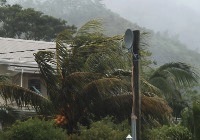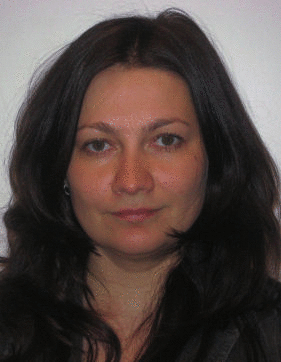This session demonstrates how novel system analytical methods can support the generation and evaluation of options for complex contemporary policy issues. Specifically, IIASA researchers present applications of advanced mathematical methods to decision-making problems for the management of land use, renewable resources and disaster risk.
IIASA uses advanced systems analysis to conduct policy-oriented research into the most pressing areas of global change – energy and climate change, food and water, poverty and equity – and their main drivers. The International Institute for Applied Systems Analysis was founded in 1972. It is located in Laxenburg, Austria.
Ulf Dieckmann
Modeling consensual bi-lateral negotiations on fishery policy
Ulf Dieckmann (Program Director, Evolution and Ecology) presents a methodology that by means of stakeholder-specific utility functions explores the “zones of consensus” regarding fishing quotas. This analysis helps defining fisheries management regimes with compatible objectives of all involved stakeholders.
Tatiana Ermolieva together with Yuri Ermoliev, Petr Havlik, Aline Mosnier, David Lecler, and Michael Obersteiner
Systemic risks and security management in land use systems: Stochastic GLOBIOM model
Tatiana Ermolieva (Ecosystems Services and Management) discusses how advanced stochastic optimization techniques help solving food, (bio)energy, environment, water (FBEW) security problems in the presence of climatic risks accounting for spatio-temporal heterogeneities and interdependencies among FBEW systems. The portfolio of decisions comprises not only strategic decisions on production allocation and grain storages but also market regulations enabling the design of robust integrated policies to maintain security given systemic risks.
Stefan Hochrainer-Stigler
Catastrophe risk modeling to inform proactive public finance for disasters: A focus on Madagascar
Stefan Hochrainer-Stigler (Risk Policy and Vulnerability) presents the latest version of IIASA’s Catastrophe Simulation (CATSIM) model. CATSIM simulates natural disaster losses on public infrastructure and evaluates the financial coping capacity of the government as well as the costs and benefits of vulnerability-reducing options including various risk management strategies. The model has been applied interactively with financial ministry staffs (in countries such as Turkey, Philippines, India, Nepal, Mexico, the Caribbean countries, and most recently in Madagascar) intent on preparing for extreme losses. It illustrates the tradeoffs and choices necessary for proactively managing catastrophic disaster risks.
Moderator:
Elena Rovenskaya, Acting Program Director, Advanced Systems Analysis







